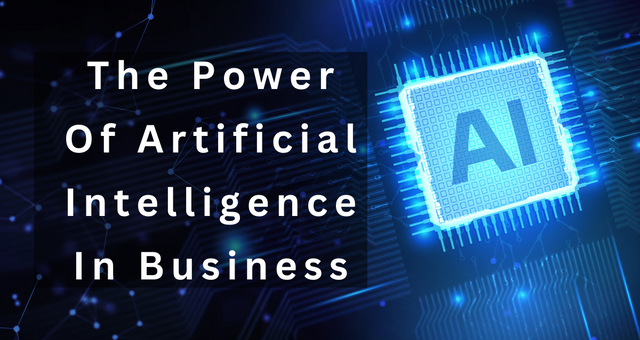Unlocking the Power of Artificial Intelligence in Business

In today's rapidly evolving business landscape, the integration of artificial intelligence (AI) has become increasingly prevalent. Businesses across various sectors are harnessing the potential of AI to drive innovation, enhance operational efficiency, and gain a competitive edge in the market. From automation to personalized customer experiences, the utilization of AI has transformative implications for businesses, shaping the future of work and productivity.
Krater AI – Best AI Tool for Business Needs: https://bit.ly/3RTUTm3
How are businesses using artificial intelligence today?
The adoption of AI in business operations is evident through real-world examples such as the implementation of AI-powered chatbots for customer support, predictive analytics for demand forecasting, and autonomous vehicles for logistics. These applications demonstrate the diverse and impactful ways AI is being used to streamline processes and drive business growth.
AI trends in modern business operations encompass the use of machine learning algorithms to analyze large datasets, enabling businesses to derive valuable insights for informed decision-making. Furthermore, the benefits of AI adoption for companies extend to improved productivity, cost savings, and heightened innovation capabilities.
8 Best Long video to short video AI Converter: https://bit.ly/477BFOs
What are the key applications of artificial intelligence in business?
AI tools for automation have revolutionized repetitive and time-consuming tasks, allowing companies to allocate resources towards more strategic endeavors. Additionally, AI's role in analytics and insights empowers organizations to uncover patterns, trends, and anomalies within their data, enabling them to make data-driven decisions and optimize business processes.
Use cases and examples of AI in business stretch across diverse domains, including marketing, finance, healthcare, and manufacturing. For instance, AI algorithms are leveraged for personalized marketing campaigns, fraud detection in financial transactions, medical diagnosis, and predictive maintenance in industrial settings.
LinkedIn Automation Made Easy: 14 Essential Tools: https://bit.ly/3DO2r26
How can artificial intelligence be used to personalize business operations?
Implementing AI for personalized customer experiences involves leveraging data to segment and target audiences effectively, delivering tailored offerings and recommendations. Additionally, natural language processing and chatbots facilitate AI-driven interactions, enhancing customer engagement and service delivery.
Furthermore, utilizing AI algorithms for business processes enables organizations to adapt and respond to individual customer needs and preferences, driving customer satisfaction and loyalty while optimizing operational efficiency.
Ai Lead Generation: https://bit.ly/43i2eQ6
What are the products and services utilizing artificial intelligence for business growth?
AI solutions for business operations encompass a wide array of offerings, including workflow automation platforms, predictive analytics software, and AI-driven customer relationship management systems. These technologies enhance productivity, efficiency, and decision-making, driving business growth across various industries.
Additionally, the business applications of generative AI, such as content generation and creative design, offer innovative solutions for content marketing, product development, and brand differentiation, reshaping the way businesses engage with their target audience.
How are companies leveraging AI to automate and improve their operations?
AI's role in automating business processes spans from streamlining supply chain management to optimizing inventory control and predictive maintenance. The integration of AI-based algorithmic detection enhances operational efficiency by identifying potential issues and anomalies in real-time, mitigating risks and minimizing downtime.
Embracing AI for transformative business productivity empowers organizations to harness data-driven insights, optimize resource allocation, and drive innovation across functions, ultimately unlocking operational excellence and sustainable growth.